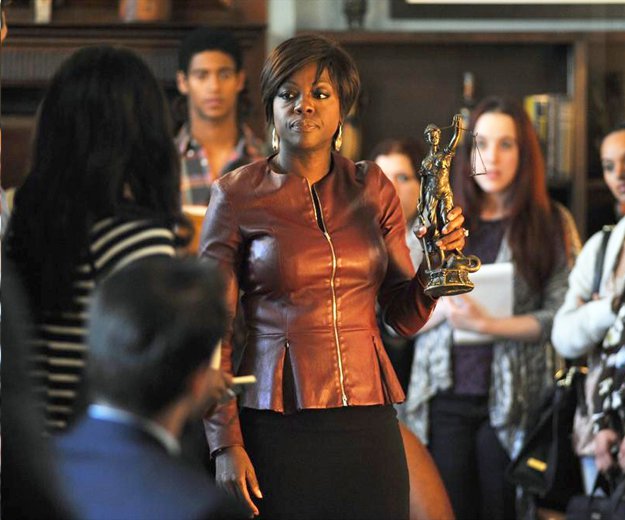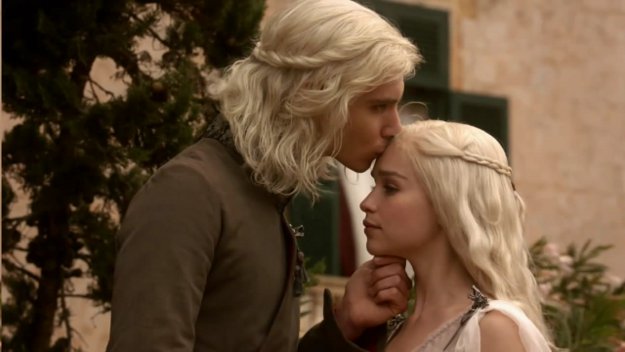From ‘Mad Men’ to ‘The Americans’: How Television Handles the Issue of Sexual Assault

It is probably more difficult to think of a television show that has not had a storyline dealing with rape than one that has. Nearly all of the most popular or most respected television shows have introduced the topic, though it's hardly limited to prestige television: Downton Abbey, Scandal, House of Cards, Private Practice, Mad Men, Game of Thrones, The Americans, Reign, Veronica Mars, Sons of Anarchy, The Sopranos, Bates Motel, How to Get Away with Murder. This list is far from exhaustive; there are also procedurals that deal with rape in their story-of-the-week, endless soap operas throughout the years, and plenty of shows that are simply not as recent.
Rape is so common in fictional narratives for women that it can practically be anticipated. The fallout varies wildly show to show, but more often than not the critical reaction is not positive. This is because rape is a delicate topic that isn't always handled the way it deserves, which makes the storylines dealing with it fall into offensive or trope-laden territory.
One of the methods often used to integrate a rape storyline into a show is as a tragic backstory – a flashback used to explain why a woman is the way she is, particularly if that woman is of the colder, less trusting variety. The Americans did this with lead character Elizabeth Jennings, a Soviet spy undercover as a normal American citizen. In the pilot of the series, during a flashback, we see a young Elizabeth preparing for her future role as a spy and subsequently being assaulted by a commanding officer. In the present, she faces her rapist again and her suppressed secret is revealed to her co-spy and faux-husband, Philip. It explains her edginess, her unwillingness to trust, and some of her deep-rooted anger; the revelation of it is what enables her and her husband to finally bridge the distance between them. More recently in How to Get Away With Murder, Viola Davis' Annalise was revealed to have been assaulted by her uncle as a child, and even says, "This thing that happened to me […] is why I am the way I am."
Annalise is not dissimilar to Elizabeth in some ways: both are women who will do whatever it takes to achieve their goals and could be considered emotionally distant, untrusting, angry. The violence in their past is used as a way to explain why they have hardened their hearts in the present. But why is rape so often the go-to tragedy for female characters? There have been plenty of male characters throughout time who are just as hardened, just as tough, just as unable to open themselves up emotionally, but you'd be hard-pressed to find one of them that had been sexually assaulted in the past as an explanation for it.
There is also a tendency to use this specific storyline with a specific type of woman in an effort to make her more sympathetic or palatable. It's been exceptionally popular on soap operas for years, used to turn seductive bad girls into soft-hearted heroines. This is, in a way, rape as punishment or redemption. The old Beverly Hills 90210 utilized this with Jennie Garth's Kelly, using rape-as-backstory to give depth to her spoiled rich girl and beginning her journey from shallow secondary character to center of the show.

One could even argue Mad Men did this to some extent with Joan, who, though she was not necessarily made kinder or softer, is still the type of female character who often is the victim of an assault: bitchy, sexual, flat-out mean at times. Rape-as-redemption serves as another example of how sexual assault is used to add tragic depth to a female character's journey. It makes rape into shorthand for character growth.
This is why rape often functions as a plot device or for shock value, without the narrative imparting the full weight that the situation deserves. Downton Abbey is guilty of this; having apparently run out of other storylines for goodhearted maid Anna, she was made the victim of a violent assault. More recently, the usually light retelling of Mary Queen of Scots' life on the CW, Reign, had their titular character raped in a scene that was criticized for its explicitness and for introducing the plot to provide conflict for Mary's husband, rather than for Mary herself. None of these storylines seem to provide a sense of narrative satisfaction or closure, simply attempting to stir up shock and misery without real thought to the victims, both fictional and actual. It is tone deaf to say the least, if not outright insensitive.
Game of Thrones is guilty of abusing just about every rape trope in existence, including all of ones already mentioned and adding romanticized assault to the list. In the first season, Daenerys is married off, raped continuously by her new husband, and then falls completely in love with him without even a hint that the show seemed to understand that it was some extreme Stockholm Syndrome.
This is not to say that every single instance of rape on television is handled poorly. The Americans has done interesting things in addressing Elizabeth's rape over the course of the series, exploring how it colors that character's behavior long-term, as well as how she is still dealing with the fallout all these years later. There is also a subtle thread running through the show, not openly addressed but clearly present, of how both Elizabeth and Philip must constantly deal with lack of control over their own bodies due to their position as spies. They use their bodies as tools for their country, whether through violence or sex, and this is one of many issues that takes a toll on them.
Joan's rape on Mad Men brought a hard dose of reality to a show where sexism is ever-present but could probably be written off by audiences as "of the time," attaching a kitschy quality to the goings-on at Sterling-Cooper to create emotional distance. It is difficult to have emotional distance, however, when one is seeing a much-beloved character in such a horrible situation. It was also not the only sexual assault on the show. It is worth noting that when an assault is committed on Mad Men, the perpetrator is not a nameless, faceless stranger – it is a familiar character whom the audience will have to deal with long after the fact. This is important considering how many real women are raped by men that they know, even men they trust and love. This brings a sense of realism and weight to the stories while challenging the viewer. Peter Campbell is often hilariously horrible, but can you still find him amusing after he has raped a neighbor's au pair? Don Draper is essentially a sex symbol at this point, but can you still find him sexy after watching him assault Bobbi Barrett?
Even in the world of Very Special Episodes, there is a way to address rape honestly and appropriately. Over a decade ago, Degrassi: The Next Generation, a show often unintentionally funny and relatively iconic for its issue-of-the-week teen fare, had an arc in which popular girl Paige is date-raped by an older boy from another school. The arc holds up fairly well even all this time later, handled with care and sympathy that allowed Paige to experience the full gamut of anguish and rage, and then go on to recover.
The issue is not that we shouldn't tell stories of assault and survival. These are human experiences and they deserve to be explored. It's just that we should do it right, for the right reasons, and with respect.

Author Bio:
Megan Walsh is a contributing writer at Highbrow Magazine.






























































































































































































































































































































